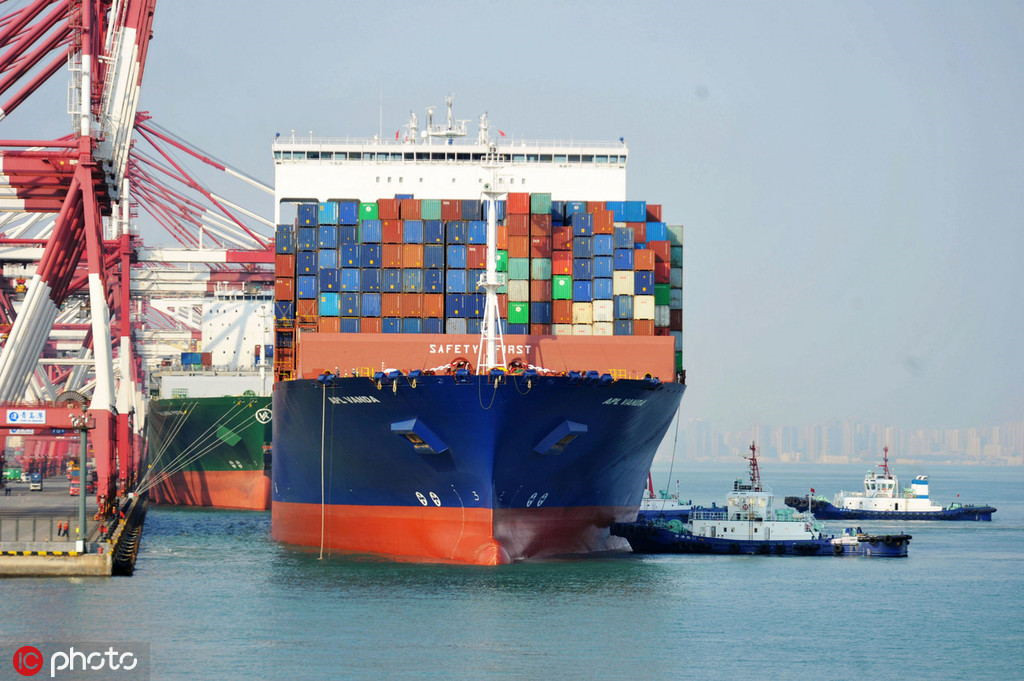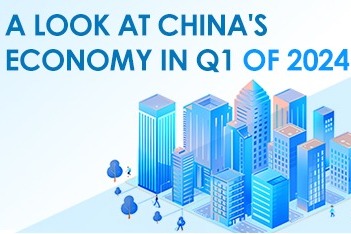US trade stance to hit global value chain


Companies and experts warned that intensifying Sino-US trade disputes could lead to a breakdown of the global value chain, as the United States Trade Representative started a seven-day public hearing on the proposed additional tariffs on $300 billion worth of Chinese exports on Monday.
Last month the US government increased tariffs on $200 billion of Chinese exports to 25 percent and further ordered the USTR to prepare more tariffs on another $300 billion worth of Chinese goods, covering almost all exports from China. The hearing is being held from June 17 to 21, and then will run from June 24 to 25.
Last week, more than 600 US companies and trade associations including Walmart, Target and Costco sent a letter to US President Donald Trump, warning that tariffs on Chinese exports will have a longterm negative impact on US businesses.
"We remain concerned about the escalation of tit-for-tat tariffs," the letter said. "Tariffs are taxes paid directly by US companies, including those listed below-not China."
The letter stressed that escalated trade tensions were not in the US' best interests and both sides would stand to lose.
"The negative impact on US companies and consumers will only grow bigger," said Li Xuesong, an economist with the Chinese Academy of Social Sciences, pointing out that US consumers will suffer the consequences of additional tariffs, even though the US government has been claiming that China would pay the price.
"The $300 billion of Chinese goods subject to the proposed tariffs are less elastic than the previous batches," Li said, adding that the US will find it hard to source alternative exporters. "The $200 billion of Chinese goods subject to the tariffs were already hard to be substituted, that was why at the beginning the Trump administration set the tariff at 10 percent."
While the US government blamed China for "unfair trade practices" that led to the trade deficit, Li Daokui, director of the Academic Center for Chinese Economic Practice and Thinking at Tsinghua University, said the origins of the trade tension lay within socioeconomic faults in US society.
"Sino-US trade relations are a vital part of the global value chain. Damaging Sino-US relations, in fact, damages the global production and value chain," said Li.
Bai Chongen, dean of Tsinghua University's School of Economics and Management, said that the trade tensions were rooted in the US government's incompetence in handling its domestic policies.
"The US has benefited greatly from trade, but it failed to compensate those whose interests were lost during the trade or in solving the issue of unbalanced incomes," said Bai.
"US politicians turned a blind eye to their own problems and have been laying the blame with other countries, while ignoring the efforts China has been making to narrow the trade gap."
- Balderdash to claim foreign investment is fleeing China
- It would be a mistake to overlook China's market potential, says Louisiana official
- US told to stop interfering in HK
- US-provoked trade frictions cannot hinder China's development, says expert
- Over 600 US companies, associations warn White House against tariff hikes on China




































